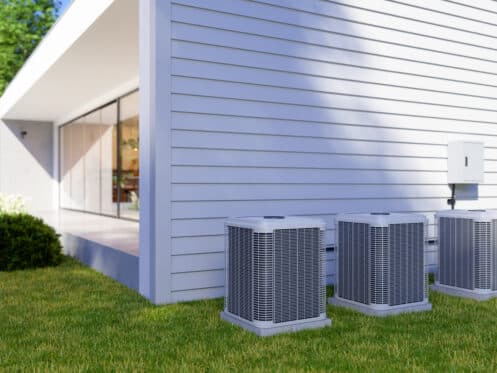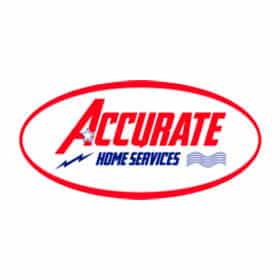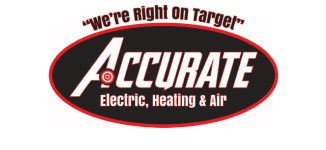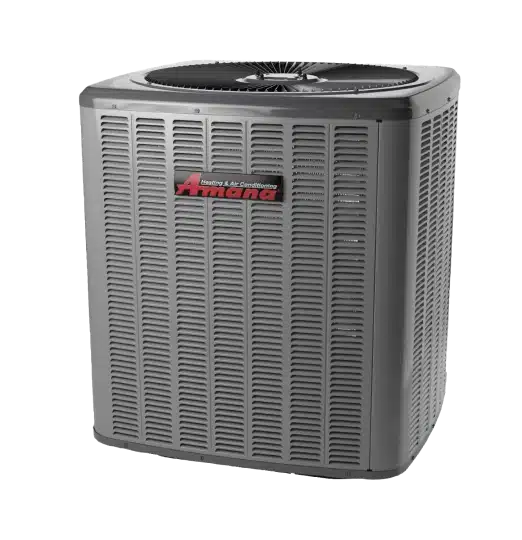If you live in Kaufman, TX, you should already know that it gets fairly cold here in the winter. That means making certain that your home has a dependable heating system is a must. It’s a big reason that homes here, as in much of the US, rely on gas- or electric-powered furnaces for heat. They’re reliable and relatively cheap to operate, and they don’t cost much to purchase and install. However, in recent years, heat pumps have become a popular alternative for homeowners looking for the latest in heating technology. That’s led to the team here at Accurate Home Services fielding more and more questions from homeowners who aren’t sure how to choose between furnaces and heat pumps. So, here’s a guide to making that decision, including the pros and cons of each option.
The Pros of Gas and Electric Furnaces
Gas-powered furnaces have a long history here in the US. The first mass-market models appeared in the early 1920s, gaining instant market share thereafter. The reasons for that were simple. Gas furnaces, for one thing, are relatively simple. They burn natural gas to heat air as it’s circulated through a home. It’s a process that’s reliable and safe and that doesn’t require complex machinery to operate.
It helped that the development of the natural gas furnace coincided with the building of natural gas pipelines that crisscrossed the country, bringing reliable natural gas service to homes in the process. That drove down the cost of natural gas considerably, making it one of the most cost-effective fuels for heating homes.
On top of that, gas furnaces have evolved over the years into one of the most efficient types of heating systems available. Today, you can’t buy a gas furnace with an AFUE rating below 80, meaning that it’s 80% efficient at using its fuel to produce heat. However, there are ultra-high-efficiency furnaces on the market that are as much as 98.5% efficient.
Although less common, electric furnaces also heat a substantial number of homes in the US. They’re attractive because they offer 100% efficiency. That’s because electric resistance heating elements convert all the electricity they consume into usable heat for your home. In regions that don’t have natural gas lines readily available, electric furnaces tend to dominate due to their simplicity, reliability, and efficiency.
The Cons of Gas and Electric Furnaces
Gas-powered furnaces aren’t perfect, however. Since they involve combustion, there’s always a risk of a household fire when using them. According to the National Fire Protection Association, over one in six residential fires in the US stem from heating systems. When you consider that 47% of American homes rely on natural gas for heat, it’s clear that gas furnaces make up a significant portion of those fire incidents.
Fire isn’t the only potential threat posed by gas-powered furnaces. When they malfunction, they also pose a risk of emitting carbon monoxide. It’s a colorless, odorless gas that can kill the occupants of a home in sufficient quantities. Fortunately, carbon monoxide detectors can mitigate that risk somewhat, but it’s something to consider if you’re thinking about buying a gas furnace.
When it comes to electric furnaces, the risk of fire is also present. They use high-temperature heating elements that can cause nearby items to combust. It’s a significant problem, too. In the US, there are an average of 30,000 electrical fires each year, with the majority attributable to electric heaters.
On top of that, electric heaters can also be quite expensive to operate. Despite their high efficiency, electricity rates throughout Kaufman and the rest of the US are volatile. In the event of a rate spike, you could find yourself paying far more than usual to heat your home.
The Pros of Heat Pumps
Heat pumps are a much newer heating technology than gas or electric furnaces. However, the science that makes them possible isn’t. In fact, most people already have two different types of heat pumps installed in their homes. Even if you don’t know it, your home’s refrigerator and its air conditioning system are heat pumps. The principal difference between those and the heat pumps used to heat homes is the direction that their refrigerant flows.
A heat pump, unlike a gas-powered furnace, doesn’t consume fuel to generate heat. It doesn’t even use electricity to generate heat as an electric furnace does. Instead, it uses a refrigerant to capture existing heat energy from the outside air and carry it inside to heat your home. The only electricity a heat pump uses goes to power a compressor and its fans. As a result, heat pumps are far more efficient than even the best gas-powered furnace on the market today. They’re also even more efficient than electric furnaces. Some air-source heat pumps can operate at up to 400% efficiency in the right conditions.
Heat pumps also come with the benefit of doubling as an air conditioning system. Since they use the same technology as an air conditioner, they can operate in reverse to cool your home in the summer. That means you can purchase a new heat pump to replace an existing heating and air conditioning system with a single dual-role unit.
The Cons of Heat Pumps
One of the biggest drawbacks of heat pumps is that they cost more up front than gas or electric furnaces. Although the gap continues to narrow, you can expect to pay more for a new heat pump than you would if you opted to replace a conventional furnace with a similar system. However, if your home doesn’t already have a furnace installed, the costs of the two systems are almost identical in many cases.
Also, heat pumps, although very efficient, do use electricity to operate. Since electricity costs more than natural gas, that means you’ll have higher energy bills when operating a heat pump. The same isn’t true when you compare heat pumps to electric furnaces, though. The good news is that the extra efficiency you get from a heat pump should be a net positive for your home’s energy bottom line either way.
The only caveat to that is if the outside temperature drops well below freezing. When that happens, heat pumps begin losing their efficiency since it’s harder to harvest heat energy from very cold outdoor air. In some cases, this can force a heat pump to engage an electric-resistance heating element to augment its heat production. A heat pump operating in that mode is less efficient than the average gas-powered furnace. In fact, in that mode, a heat pump essentially functions as an electric furnace would. So, if we have a stretch of unexpectedly cold weather, you could end up spending more than you’d like to heat your home.
Making Your Decision
Based on the pros and cons detailed above, it’s obvious why so many homeowners struggle with deciding between a furnace and a heat pump. The truth is both make a strong case as to why they’re the best residential heating option. The decision often comes down to a few simple factors. One is familiarity. Homeowners who’ve had conventional furnaces for years may feel more comfortable with them since they’ll know what to expect from their new heating system.
However, the US won’t continue relying on natural gas forever, and heat pumps are the heir apparent to the venerable gas-powered furnace. Even now, heat pumps are almost at cost parity and cost significantly less to operate. The same is true with electric furnaces, which consume far more electricity than a heat pump would. Plus, heat pumps are also environmentally friendly and work especially well in places like Kaufman where we don’t see too many days with sub-freezing temperatures.
So, as you approach the decision, think about it this way: Choosing a conventional furnace is a reasonable choice, but it will likely be the last one you ever buy. There’s a good chance that your next heating system after that will be some type of heat pump. That said, it’s not a bad idea to make the transition now and start enjoying the benefits that come with heat pumps.
Whatever choice you make, you can count on Accurate Home Services to help. We offer complete HVAC installation, repair, and maintenance services, including installing the latest furnaces and heat pumps. Plus, we offer electrical and indoor air quality services, too. As a part of the Kaufman community for over 28 years, we’re proud to be your go-to option for all things heating and cooling. Call Accurate Home Services today!




